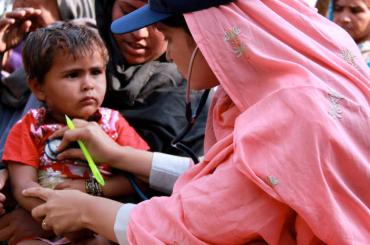

Saad Gulzar is an Assistant Professor of Politics and International Affairs at Princeton University. Before joining Princeton he was an Assistant Professor of Political Science at Stanford University. He uses field experiments and data from government programs to study the determinants of politician and bureaucratic effort toward citizen welfare. His research interests lie in the political economy of development and comparative politics, with a regional focus on South Asia. His work has been supported by grants from the International Growth Center, the Jameel Abdul Latif Poverty Action Lab's Governance Initiative, the World Bank, and the American Institute of Pakistan Studies.
Gulzar earned his Ph.D. from New York University and has previously studied at Columbia University, the National University of Singapore, and the Lahore University of Management Sciences.
Recent work by Saad Gulzar
-

Can political representation boost forest conservation?
Despite fears that devolving control over forest resources to local communities may accelerate deforestation and worsen the climate crisis, the large-scale transfer of political power to India’s historically marginalised Scheduled Tribes significantl...
Published 13.01.25
-

Getting good politicians into politics
Emphasising the ability to support and assist one’s community through elected office encouraged ordinary citizens to run for office in Pakistan which improved subsequent policy outcomes
Published 11.04.24
-

Public sector absenteeism, politics and patronage in Pakistan
Politics and patronage exacerbate public sector absenteeism, limiting the efficacy of reform measures
Published 12.06.23
-

When does politics work for development?
Political interference in the bureaucracy is generally viewed with suspicion. However, in India bureaucrats implement MNREGA much better in places where politicians are able to claim credit for improvements.
Published 11.11.19
-

The problem of public sector absenteeism
Smartphone monitoring streamlined information flows and improved inspection rates at public clinics across Punjab
Published 20.10.17